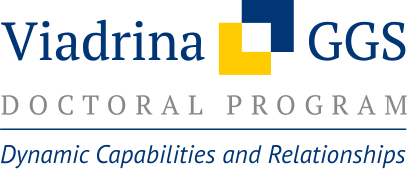2017 SMS Annual Conference: Unconventional Strategies for Emerging Complexity and Intensifying Diversity
HOUSTON | October 28-31, 2017
As industries converge and global competition intensifies, firms face increasingly complex and diverse environments. Some firms are adopting unconventional strategies to address or take advantage of these challenges. General Electric (GE), for example, in its “Reverse Innovation” model, is using China and India as innovation bases to develop new products that may be used in the U.S. and other developed countries. SpaceX, founded by Elon Musk who also founded Tesla Motors, has been making steady and surprising progress in the aerospace industry, which has historically been dominated by the government and its long-term contractors.
Not only are business environments changing, but workforces and senior leaders of firms are evolving as well. Immigrants moving from Latin America to the United States and those moving from the Middle East to Europe are significantly increasing diversity in key economic centers. In addition, women and ethnic minorities are making progress in moving up corporate ladders and joining executive suites and boardrooms in many parts of the world. How this intensification of diversity will shape and be shaped by firm strategies remains an ongoing and important issue.
The theme for the 2017 SMS Annual Conference, “Unconventional Strategies for Emerging Complexity and Intensifying Diversity,” embraces these challenges and the types of unconventional (i.e., unusual, avant-garde, exceptional, against-the-grain) strategies that might be used to address them. The theme tracks highlight unconventional strategies on key topics. We call for proposals that will help firms and managers identify and make sense of strategies that might have important implications for emerging complexity and intensifying diversity.
Houston is a great location for management scholars to meet and discuss “Unconventional Strategies.” Houston is anything but simple or conventional. Once a backwater swamp, it now is a diverse and international city. Forbes recently called Houston “America’s next great global city and capital of the Third Coast.” Houston has succeeded because it dreams BIG. The dredged ship channel that reaches to the Gulf of Mexico is big. NASA is big. The Texas Medical Center is big. Houston is also successful because its many academic institutions have fueled the development of biomedical, energy, manufacturing and aerospace industries. Nonprofit leader Rhetta Detrich once said, “Houston. . . is insanely entrepreneurial and optimistic. It incubates the hell out of new ideas.”
Madeleine Rauch: Strategy-Making In The "War Room": An Ethnography Of Top Managers Behind Closed Doors
While the strategy-as-practice research has gained considerable momentum over the past years, we know little about how top managers engage in strategy making under extreme situations. Therefore, in this paper, we explore how top managers engage in strategy making behind closed doors facing an organizational crisis. Drawing on a one-year ethnographical study, the analysis of a large international automotive supplier shows that top managers struggle to adapt to extreme situations, i.e. when top managers are left with no (viable) alternative. Specially, our findings show that top managers emphasize on narrating rather than rationalizing strategy-making behind closed doors. The findings provide a unique insight in top manager´s strategy decision-making process when facing a “loss-situation”, drawing on reputation, identity and emotional underpinnings.
Matthias Wenzel, Madeleine Rauch, Jochen Koch, Michael Hartmann: Staging Deliberate Strategy-making: A Dramaturgical Analysis
While research on strategy process has highlighted that deliberate strategy-making is symbolically “staged” to a large extent, we know little about how firms do so. Therefore, in this paper, we explore how firms stage deliberate strategy-making. Our dramaturgical analysis of a large German broadcasting firm’s strategy process shows that firms create the illusion of deliberate strategy-making by enacting two complementary practices—top-down staging and bottom-up staging—in a ceremonial process that results in a narrow implementation of intended strategies. Our findings contribute to developing an understanding of deliberate strategy-making as a ceremonial staging process and, in doing so, extend understanding of its role in the strategy process.
Abiodun Adegbile, Albrecht Söllner, Heinz-Theo Wagner: Linking Resource Mobilization Approaches and Performance in Entrepreneurial Ventures: A Social Network Perspective
What is the relationship between resource mobilization approaches and entrepreneurial venture performance? We examined two resource mobilization approaches - bricolage and optimization - defined as recombining existing resources for new purposes and using new standard resources for the specific application for which the resource is intended, respectively. We argue that the effect of resource mobilisation approaches on entrepreneurial venture performance is contingent upon network embeddedness (the extent to which an entrepreneur is involved in a network of interconnected inter-firm relationships) and network complementarity (the extent of overlap between an entrepreneur’s current network priorities and the resources potentially available from a person). Using data pertaining to new venture firms, we test our hypotheses and discuss implications for new ventures and the broader entrepreneurship literature.
